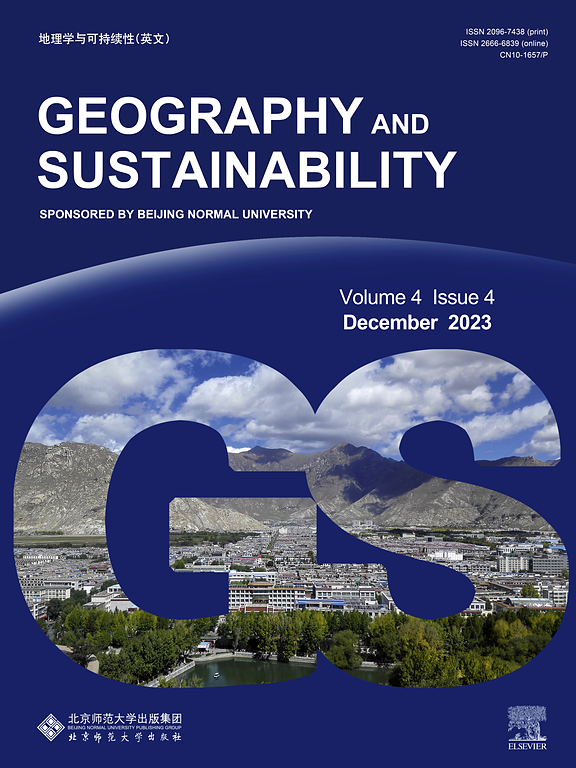Exploring the role of armed conflict in progress toward Sustainable Development Goals: Global patterns, regional differences, and driving mechanisms
IF 8
1区 环境科学与生态学
Q1 GEOGRAPHY, PHYSICAL
引用次数: 0
Abstract
The Sustainable Development Goals (SDGs) represent a solemn commitment by United Nations member states, but achieving them faces numerous challenges, particularly armed conflicts. Here, we analyzed the impact of armed conflict on SDG progress and its driving mechanism through causal inference methods and machine learning technique. The results show that between 2000 and 2021, armed conflicts slowed overall SDG progress by 3.43 %, equivalent to a setback of 18 years. The Middle East was the most affected region, with a 6.10 % slowdown in progress. The impact of different types of conflict varies across specific goals: interstate conflicts primarily affect SDG 5 (Gender Equality) and SDG 7 (Affordable and Clean Energy), while intrastate conflicts have a larger impact on SDG 4 (Quality Education) and SDG 9 (Industry, Innovation and Infrastructure). Additionally, SDG 15 (Life on Land) is severely affected by both types of conflict, with long-term consequences. As armed conflicts increase, the development progress would regress rapidly in a non-linear manner. To achieve the SDGs by 2030, it is crucial not only to prevent conflicts but also to proactively address and mitigate their impacts on development.

探讨武装冲突在实现可持续发展目标进程中的作用:全球模式、区域差异和驱动机制
可持续发展目标是联合国成员国的庄严承诺,但实现可持续发展目标面临诸多挑战,特别是武装冲突。本文通过因果推理方法和机器学习技术,分析了武装冲突对可持续发展目标进展的影响及其驱动机制。结果显示,2000年至2021年期间,武装冲突使可持续发展目标的总体进展减缓了3.43%,相当于倒退了18年。中东是受影响最严重的地区,其进展速度放缓6.10%。不同类型冲突的影响因具体目标而异:国家间冲突主要影响可持续发展目标5(性别平等)和可持续发展目标7(负担得起的清洁能源),而国内冲突对可持续发展目标4(优质教育)和可持续发展目标9(工业、创新和基础设施)的影响更大。此外,可持续发展目标15(陆地生命)受到这两种冲突的严重影响,并产生长期后果。随着武装冲突的增加,发展进展将以非线性方式迅速倒退。要在2030年前实现可持续发展目标,不仅要预防冲突,而且要积极应对和减轻冲突对发展的影响。
本文章由计算机程序翻译,如有差异,请以英文原文为准。
求助全文
约1分钟内获得全文
求助全文
来源期刊

Geography and Sustainability
Social Sciences-Geography, Planning and Development
CiteScore
16.70
自引率
3.10%
发文量
32
审稿时长
41 days
期刊介绍:
Geography and Sustainability serves as a central hub for interdisciplinary research and education aimed at promoting sustainable development from an integrated geography perspective. By bridging natural and human sciences, the journal fosters broader analysis and innovative thinking on global and regional sustainability issues.
Geography and Sustainability welcomes original, high-quality research articles, review articles, short communications, technical comments, perspective articles and editorials on the following themes:
Geographical Processes: Interactions with and between water, soil, atmosphere and the biosphere and their spatio-temporal variations;
Human-Environmental Systems: Interactions between humans and the environment, resilience of socio-ecological systems and vulnerability;
Ecosystem Services and Human Wellbeing: Ecosystem structure, processes, services and their linkages with human wellbeing;
Sustainable Development: Theory, practice and critical challenges in sustainable development.
 求助内容:
求助内容: 应助结果提醒方式:
应助结果提醒方式:


